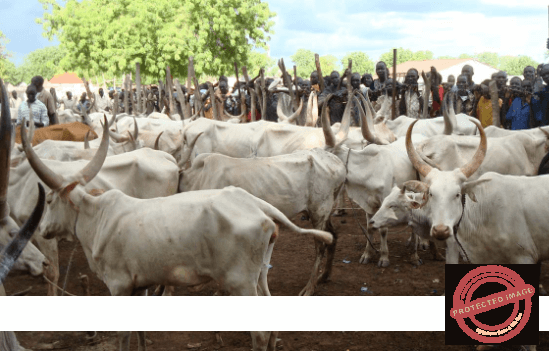In recent times, Nigeria has witnessed a significant surge in cow prices, attributed to a combination of factors including insurgency and insecurity in Northern Nigeria, as well as growing hostility towards herdsmen in other regions of the country. This shift has transformed the once-affordable prices of cows, which used to experience spikes only during the Eid-el-Kabir festival, into year-round high rates.
Understanding Cow Prices in Nigeria
The price of a cow in Nigeria is subject to various influencing factors, including breed, location of purchase, age, rearing costs, season, and more. For instance, cows bred for meat tend to command higher prices compared to those reared for milk production. Additionally, purchasing from renowned markets often offers more budget-friendly options. Prices also tend to escalate during the dry season due to increased feeding and care expenses.
As of November 20, 2022, the average prices of cows in Nigeria are as follows:
- Small-sized cow (calf): N85,000 – N120,000
- Medium-size cow (150kg – 200kg): N150,000 – N250,000
- Big-size cow (220kg – 250kg): N250,000 – N300,000
- Very large cow (300kg – 350kg): N350,000 – N500,000
- Giant-sized cow (400kg – 550kg): N500,000 – N800,000
Notable Cow Markets in Nigeria
For those seeking to purchase cows at competitive prices, several prominent cow markets across the country offer favorable options. Some of the top markets include:
- Wudil Cattle Market, Kano State
- Sheme Cattle Market, Katsina State
- Potiskum Cattle Market, Yobe State
- Maitagari Cattle Market, Jigawa State
- Amansea Cattle Market, Anambra State
- Asaba Cattle Market, Delta State
While these markets are renowned for offering favorable prices, it’s worth noting that other local markets can also provide suitable options for buyers based on their proximity.
Cow Breeds in Nigeria: Unique Characteristics
The breed of a cow is a crucial factor influencing its price in Nigeria. Here are some of the popular cow breeds in Nigeria and their distinctive features:
- N’Dama: Originating from Guinea in West Africa, N’Dama cows are known for their lean meat and low fat content. They are relatively smaller in size with short height, light-colored coats, and short hair. While they produce minimal milk, they are primarily reared for their meat.
- White Fulani (Bunaji): Indigenous to Nigeria, White Fulani cows are recognized for their long lactation periods, making them prized for both milk and meat production. They have wide-set long horns and light-colored skin, and they are well-suited to harsh weather conditions.
- Red Bororo (Mbororo): Popular among the Fulani tribe in Northern Nigeria, Red Bororo cows are primarily raised for their meat. They are characterized by their reddish-brown coloration and long horns, and are well-adapted to nomadic lifestyles and arid climates.
- Sokoto Gudali: This breed is prevalent in Nigeria and is known for its substantial size and dual purpose of meat and milk production. They are recognized by their short horns and come in various colors, with black and white being the most common.
- Muturu: These cows are valued for their robust build and strength, making them suitable for farm work. While they are primarily bred for their meat, they are not significant milk producers. Muturu cows have a short stature and are known for their rapid growth.
In conclusion
the increasing cow prices in Nigeria can be attributed to a combination of socio-political factors. Understanding the various breeds and their unique characteristics can aid buyers in making informed decisions based on their specific needs. When seeking affordable options, exploring reputable cow markets is crucial for a satisfactory purchase.

